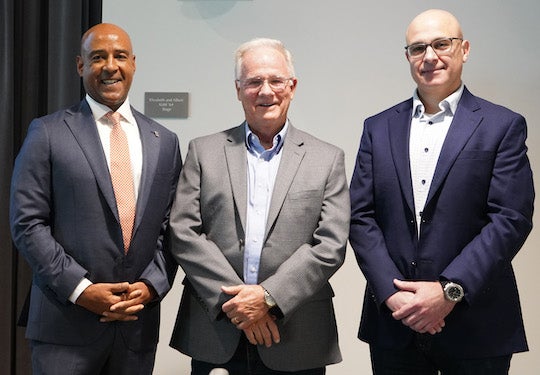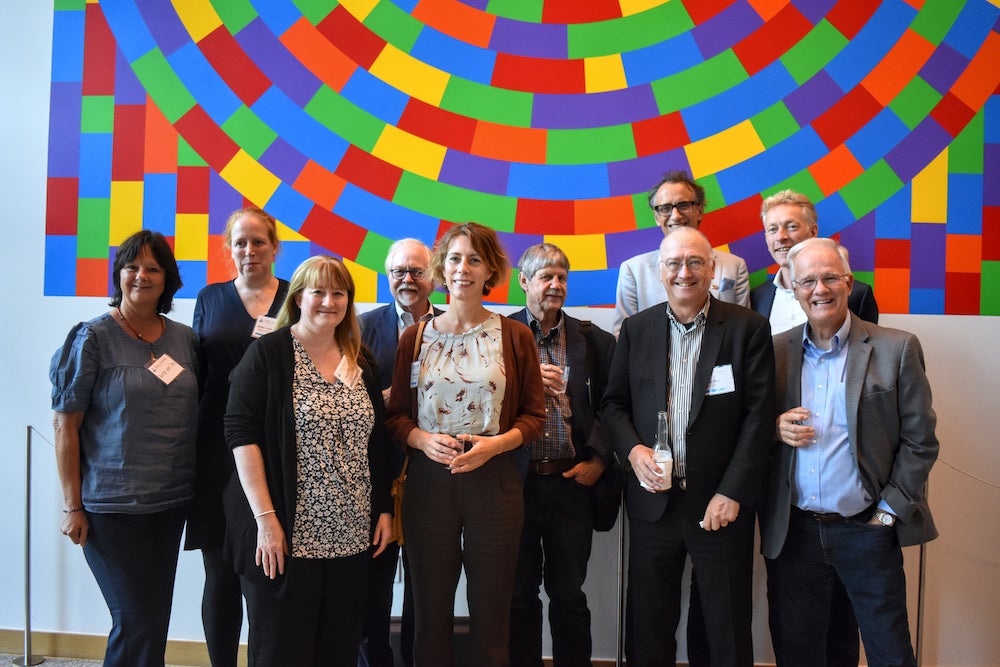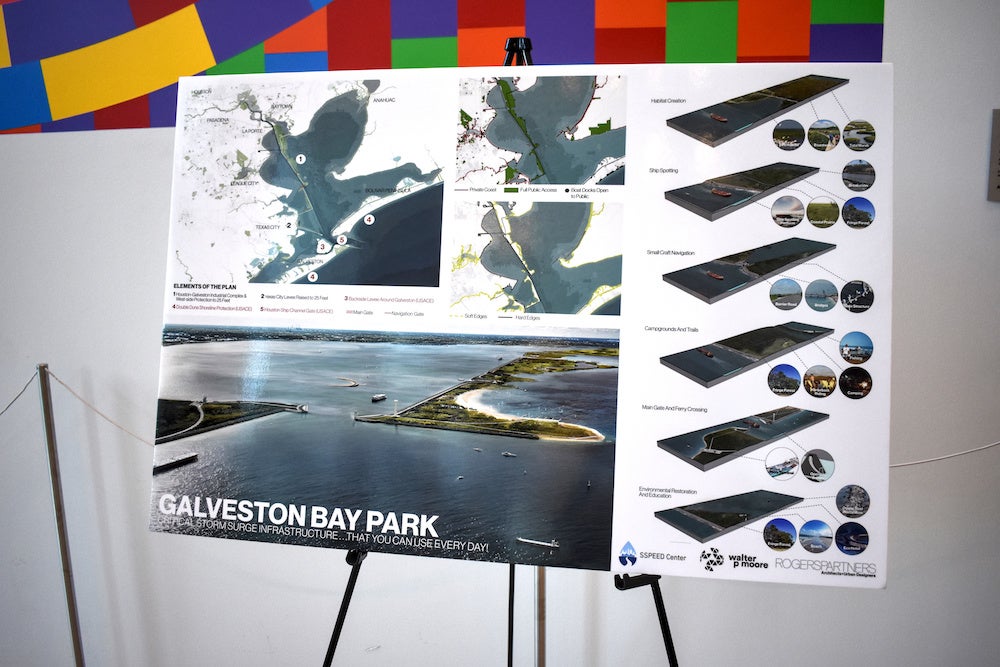The Severe Storm Prediction, Education and Evacuation from Disasters (SSPEED) Center at Rice University hosted its 11th annual conference last month at the university’s Anderson-Clarke Center.

Rice President Reginald DesRoches, Philip Bedient, the SSPEED Center director, and Luay Nakhleh, dean of Rice’s George R. Brown School of Engineering, opened the two-day event titled “Urban and Coastal Flooding: Building a Resilient Future.” The conference brought together experts on flood control from around the world, most notably from the Netherlands and the United Kingdom.
More than 160 people attended this year’s gathering, which featured talks and discussion sessions on three main areas: measures for a flood-resistant future, coastal protection and nature-based flooding solutions. The Galveston Bay Park Plan and the Coastal Spine Project were two of the flood defense initiatives discussed.
Representatives from the Harris County Flood Control District (HCFCD) presented methods and results for the Modeling, Assessment and Awareness Project, which seeks to “develop the next generation of flood mapping” in order to “bring the region’s flood resistance and resilience to the next level,” according to the organization’s website.

One of the panels featured Jim Blackburn, SSPEED co-director, and leaders from HCFCD, Houston Public Works and the U.S. Army Corps of Engineers’ Fort Worth District as part of a discussion on the future of regional flood control in the context of climate change. Rice computer science experts discussed machine learning approaches to flood analysis. In addition to Bedient and Blackburn, Rice civil engineering speakers included Daniel Cohan, Arlei Silva, James Doss-Gollin and Jamie Padgett.
Participants from the Netherlands included engineering consulting professionals, academics and representatives from the Delfland Water Board, the Netherlands Business Support Office of Texas and Dutch Water Prevention. Sally Priest, an associate professor at Middlesex University London, presented on challenges and opportunities for the implementation of flood resilience.

The conference was sponsored by AECOM, DEC Engineering, Institute for a Disaster Resilient Texas and Walter P Moore.
More information about the conference can be found at sspeed.rice.edu.
- Image downloads:
-
https://news-network.rice.edu/news/files/2023/11/DSC05399-2.jpg
CAPTION: Rice University President Reginald DesRoches (from left); Philip Bedient, Herman Brown Professor of Engineering and SSPEED Center director; and Luay Nakhleh, William and Stephanie Sick Dean of Rice’s George R. Brown School of Engineering and a professor of computer science and biosciences. (Photo courtesy of the SSPEED Center/Rice University)https://news-network.rice.edu/news/files/2023/11/DSC_0579.jpg
(Photo courtesy of the SSPEED Center/Rice University)https://news-network.rice.edu/news/files/2023/11/DSC_0702.jpg
(Photo courtesy of the SSPEED Center/Rice University) - Links:
-
Severe Storm Prediction, Education and Evacuation from Disasters Center: https://www.sspeed.rice.edu/
George R. Brown School of Engineering: https://engineering.rice.edu/
Susanne M. Glasscock School of Continuing Studies: https://glasscock.rice.edu/Department of Computer Science: https://csweb.rice.edu/
Department of Civil and Environmental Engineering: https://cee.rice.edu/
- About:
-
Located on a 300-acre forested campus in Houston, Rice University is consistently ranked among the nation’s top 20 universities by U.S. News & World Report. Rice has highly respected schools of Architecture, Business, Continuing Studies, Engineering, Humanities, Music, Natural Sciences and Social Sciences and is home to the Baker Institute for Public Policy. With 4,552 undergraduates and 3,998 graduate students, Rice’s undergraduate student-to-faculty ratio is just under 6-to-1. Its residential college system builds close-knit communities and lifelong friendships, just one reason why Rice is ranked No. 1 for lots of race/class interaction and No.4 for quality of life by the Princeton Review. Rice is also rated as a best value among private universities by Kiplinger’s Personal Finance.

